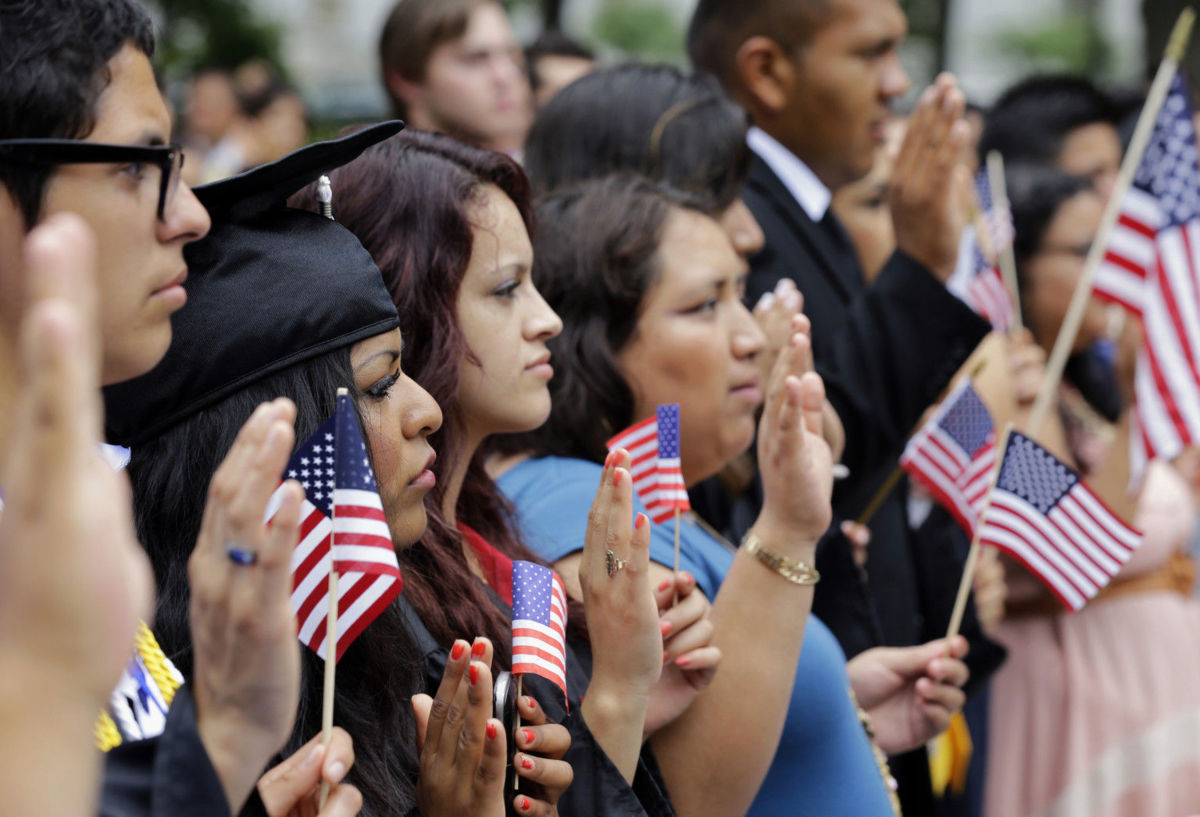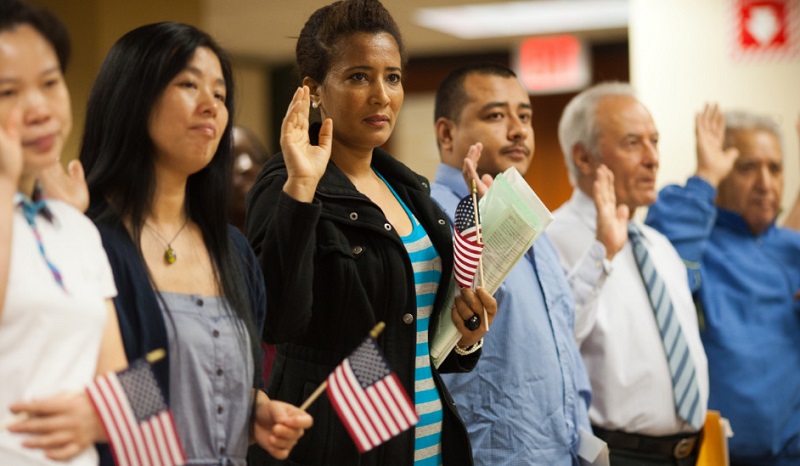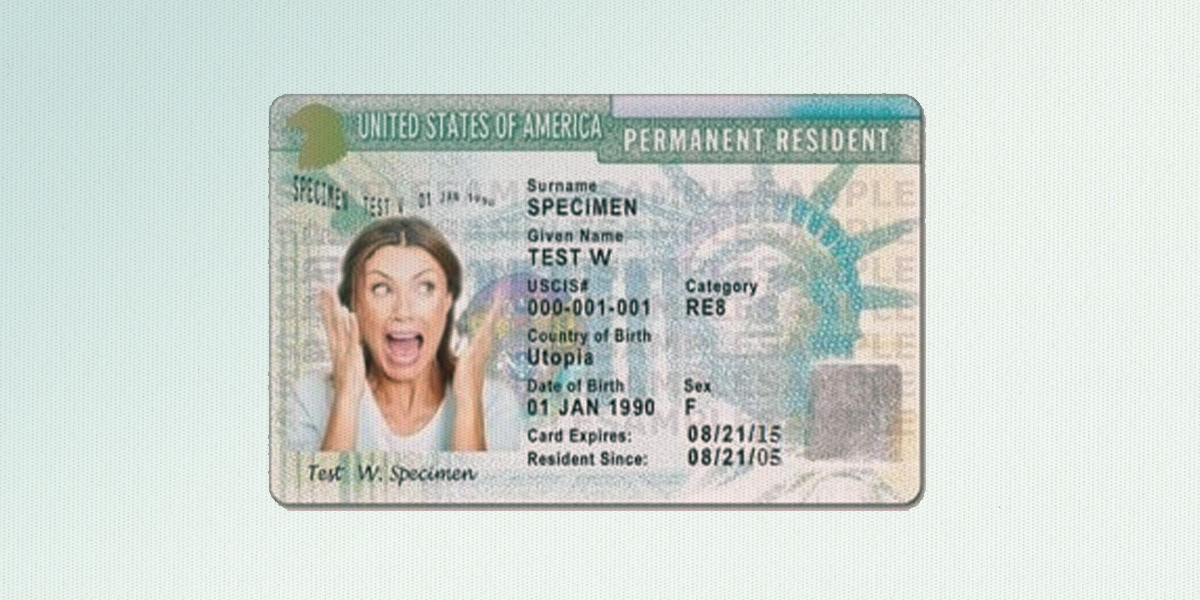

Are you thinking about applying for citizenship but still have some lingering questions? These are the top 7 questions asked by people getting ready to file Form N-400, Application for Naturalization, also known as the U.S. citizenship application.
Table of ContentsThere are an estimated 9.2 million permanent residents who are eligible for citizenship but are cautious because of the unknown. It’s a big step. Here’s what many of them want to know.
The length of the naturalization process can vary depending on several factors including the case load at USCIS and your ability to submit a well-prepared application. It will typically take 8 to 12 months to naturalize after filing Form N-400, Application for Naturalization. It may be shorter for some and longer for others.
For most people, there are three major appointments that you’ll need to attend. They are:
Permanent residents who file the N-400 application at least six months before their green card expires will also get a no-cost extension. USCIS will provide an extension on the validity of your green card while you wait for the naturalization process to finish. You won't have to worry about your green card expiring.

As a naturalization applicant, you’re likely anxious to know what happens after filing Form N-400. We’ve put together an outline…
It's expensive to renew a green card. If you intend to apply U.S. citizenship also, it's understandable that you don't want to pay for both. You may file Form N-400, Application for Naturalization, to apply for citizenship with an expired green card. The green card must be in your possession. Therefore, if your card has been lost or stolen, you'll need to replace your green card before applying for citizenship.
Although you may use an expired green card to apply for citizenship, you'll need to consider the next 8 to 12 months without proof of permanent residence. An expired green card can create other problems. Some of the biggest problems associated with an expired green card include international travel, obtaining employment in the U.S. and obtaining a home loan. In some cases there are solutions that can resolve the problem while you wait for citizenship.
Remember, USCIS will provide an extension on your green card if you file Form N-400 at least six months before the card expires.

You’ve decided that it may be time to apply for U.S. citizenship, but you also realize that your green card…Continue…
Applying for citizenship costs slightly more money that renewing a green card. Over the long term, it's actually much cheaper. In most cases, the total USCIS fee to file the U.S. citizenship application is $760.
But, how much does it cost not to apply for citizenship? Compared the long-term costs of remaining a permanent resident, becoming a U.S. citizen is far less expensive. For example, the average 30-year old will pay another $5,313 in USCIS fees over their lifetime they continue to be permanent resident.
USCIS has made it easier in recent years to pay the N-400 fees. You may pay by credit card. People with low incomes or certain qualifying events may be eligible for a fee waiver. Applicants who are 75 years old or more, do not have to pay the biometrics fee. And finally, those who are honorably serving in the U.S. armed forces will pay no fees at all.
Many applicants are surprised to find that the citizenship test isn't as difficult as expected. However, if you do fail the test, you will be given another opportunity to take the test at a later date.
Study materials have made it easier than ever to pass the citizenship test. After filing Form N-400, you’ll be given an English and civics test. If you know what to study, this can be realistic for most everyone to pass.
You will only be expected to read, write, and understand simple vocabulary and use basic grammar. You can even study the vocabulary words in advance.
The history and civics test has only 10 questions, and you will only need to answer six questions correctly to pass. But these aren’t surprise questions. You can study them before the test from a list of 100 possible questions.
For older permanent residents (age 50 or more) or applicants with medical disabilities, there are also several exemptions for the test.
Forgetting to register for Selective Service can create a major problem if you're applying for citizenship. Men between the ages of 18 and 26 are expected to register for the Selective Service and provide proof for the purposes of naturalizing as a U.S. citizen. This requirement applies to U.S. citizens, permanent residents, refugees, asylees, and even undocumented aliens. It does not apply to women or foreign nationals in the United States with nonimmigrant visas (e.g. tourists, students, business, etc.). By failing to register for the Selective Service, the applicant will most likely fail the "good moral character" requirement for N-400 and USCIS will deny the application.
Applicants that are 18 to 26 years old can resolve the problem immediately by registering for Selective Service at www.sss.gov. Applicants that are age 26 to 31 are in a more difficult position if they've forgotten to register. It is too late to register for Selective Service, and they will not be able to demonstrate good moral character during their most recent five years as a permanent resident. Most attorneys recommend that their clients wait to apply.
However, applicants age 31 or older will be outside this window. The failure to register for Selective Service does not affect an applicant's five-year history of good moral character.